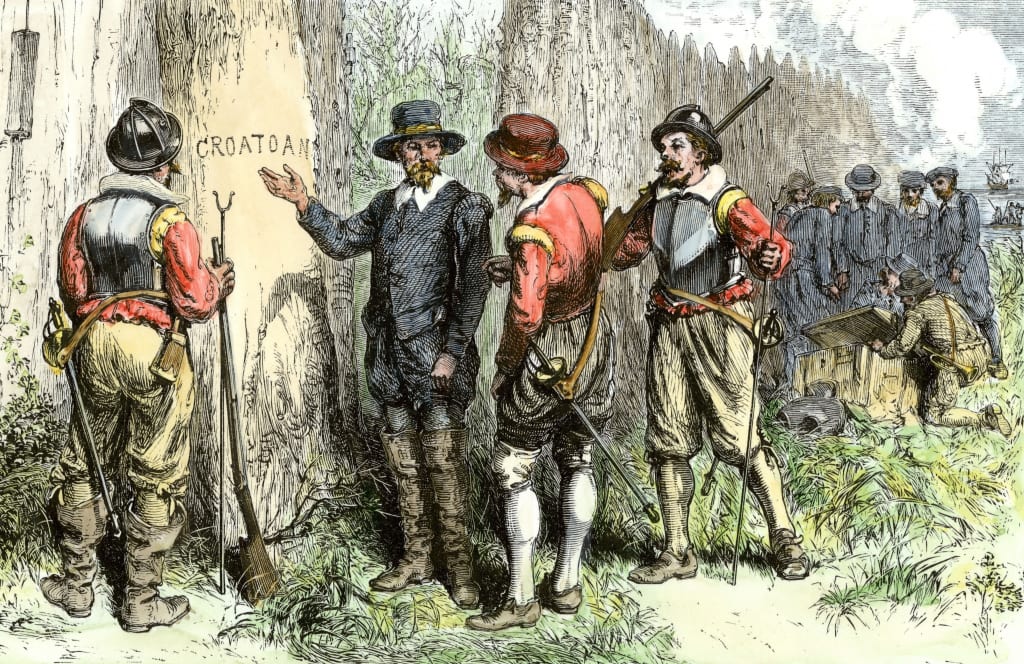Unsolved Mysteries: The Strange Disappearance of the Roanoke Colony
The Enigma of America's First English Settlement

Off the coast of what is now North Carolina, on Roanoke Island, 115 English colonists made their landing in 1587. The colonists sought to create a long-term settlement in the New World under the direction of Governor John White. The entire colony, however, disappeared without a trace within three years, leaving only a few perplexing hints and a conundrum that has baffled historians and archaeologists for generations.
The Roanoke Colony was the first English settlement in the Americas. The expedition had been organized by Sir Walter Raleigh, who was granted a charter by Queen Elizabeth I to explore and colonize the New World. The first group of colonists, led by Governor Ralph Lane, arrived in 1585 but returned to England three years later, leaving behind only a few puzzling clues and a mystery that has puzzled historians and archaeologists for centuries.
The first English attempt to found a permanent colony in the Americas was the Roanoke Colony. Sir Walter Raleigh, who was given a charter by Queen Elizabeth I to explore and conquer the New World, had planned the journey. The first group of colonists, under the leadership of Governor Ralph Lane, landed in 1585 but left for England three years later because of the difficult living circumstances and hostile native American tribes.
John White was in charge of the second effort, which began in 1587. This time, there were men, women, and kids among the colonists, including White's daughter and granddaughter. The responsibility of developing a self-sufficient colony that could offer England priceless resources like gold, silver, and lumber fell to White, who was named governor.
The Roanoke Colony initially appeared to be flourishing. The immigrants constructed homes, grew crops, and developed cordial ties with the neighborhood Croatan tribe. However, White was compelled to go back to England in late 1587 in order to get more supplies and troops. The first English women to travel to the New World were his daughter and granddaughter, whom he left behind.
In 1590, when White did make it back to Roanoke, he discovered the town to be deserted. The only indication of life was the word "Croatoan" etched into a tree trunk; the dwellings had been destroyed. White believed that the colonists had relocated to the neighboring island of Croatoan because it was populated by friendly Native Americans. But terrible weather made it impossible for White to look for the colonists, and he was forced to leave without solving the riddle.
Since then, no one knows what happened to the Roanoke Colony. There are many possible explanations, from natural disasters to hostile Spanish or indigenous tribe attacks. While some historians think the colonists became assimilated into the local Native American cultures, others think they were either slaughtered or sold into slavery.
Archaeologists and historians have recently made a number of journeys to Roanoke Island in an effort to find fresh information regarding the colony's demise. 2018 saw the discovery of various objects, including a ceramic fragment and a lead trade token, that may have belonged to the colonists. These discoveries, however, have not offered convincing proof of what happened to the settlers.
One of the longest-lasting and most fascinating mysteries in American history is the mystery surrounding the Roanoke Colony. The fate of the colonists has remained a mystery despite years of speculation and research. The Roanoke Colony's history serves as a reminder of the perils and ambiguities that the first New World explorers and colonists encountered, as well as the enduring appeal of unsolved mysteries.
The absence of conclusive evidence is one of the things that keeps the disappearance of the Roanoke Colony so intriguing. Theories concerning what happened to the settlers are supported by rumor, inference, and conjecture. Some historians argue that the absence of a distress signal when the word "Croatoan" was spoken suggests that the colonists departed on their own. Others argue that the carving might have been a ruse to trick approaching search teams.
Even though there are still many unanswered questions, the Roanoke Colony's impact on American history and culture cannot be undone. Numerous books, movies, and TV productions have been inspired by the mystery, including the most recent Netflix series, "The Lost Colony." The legend of the disappeared settlers has also served as a cautionary tale about the dangers of colonialism and expansion as well as a symbol of American tenacity and resilience.





Comments
There are no comments for this story
Be the first to respond and start the conversation.